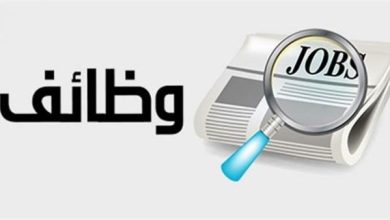Curricula and Content Development Consultant

Curricula and Content Development Consultant
CONSULTANCY POSITION: Curricula and Content Development Consultant
DEPARTMENT: Non-formal Education/Drop Out ProgramREPORTS TO: Non-formal Project Lead
LOCATION: Amman, Jordan
Employee Type: Consultant
NUMBER OF CONSULTANTS REQUIRED: 1
START DATE: 01/02/2023
ORGNISATIONAL BACGROUND
QS operates throughout the Middle East, with its main office being in Jordan. QS is a UK registered charity with the aims of advancing the education and quality of life of children, young persons and adults. QS has an office in the USA and works throughout the Middle East.
QS (Charitable, Non-governmental Organization) exists to advance the education and quality of life of children, young persons and adults. QS Programs goals included:
In Jordan: community-based women-led economic development, mentoring for "At Risk" youth, education for dropouts and community-based organisational capacity-building for women's leadership, including Jordanian nationals and refugee populations.
In Syria: integration of mentally challenged adults in Syrian communities, education for internally displaced persons (IDPs), juvenile justice, and rehabilitation.
QS focus on three core pillars:
1. Trauma Recovery
2. Economic Inclusion
3. Empowerment
PROJECT BACKGROUND
Based on the joint publication by UNICEF, UNESCO, MoE, and Institute of Statistics in 2021, the number of out of school children varies between 112,016 and 527,582, while the lower number shows 6.2% out of the total number of children and youth of school age. According to UNHCR data for the year 2019, out of the 233,000 total refugee children 83,920 were not enrolled in any education service.
On a different note, the National Committee for Human Resource Development strategy, that was published in 2016, demonstrates that the education system in Jordan fails to meet expectations on enrollment and learning outcomes.
The Drop Out Program (DOP) was initiated by QS in close partnership with MoE in 2003 to serve children/youth who dropped out from formal education for at least three years, and to respond to the learning needs of out of school youth and offer them certification through an accelerated learning process aiming to provide them with knowledge and skills in a safe and supportive environment. The program on the other hand has been a pathway for the refugee youth as they constitute part of the vulnerable groups.
DOP during the period of 18 years, (22,196) of youth has been enrolled, males 12-18 and females 12-20 through 3 cycles according to the following:
Cycle 1: 8 months and equivalent to grades 1-4 in formal education
Cycle 2: 8 months and equivalent to grades 5-7 in formal education
Cycle 3: 8 months and equivalent to grades 8-10 in formal education
The Collaborative for Academic, Social, and Emotional Learning (CASEL), an internationally renowned leader in the field of education, defines social emotional learning as “the process of acquiring core competencies to recognize and manage emotions, set and achieve goals, appreciate the perspectives of others, establish and maintain positive relationships, make responsible decisions, and handle interpersonal situations constructively.” Socio-emotional learning helps children and youth build the skills critical to resilience, healing, and coping with long-term exposure to trauma. It can also enhance outcomes of academic education by providing children with tools to help them focus, regulate their emotions, and cope with stress.
Social and emotional learning (SEL), when integrated into classroom environments has multiple proven benefits for OOS youth, many of whom are severely disadvantaged and living in conditions of extreme stress. When such stress is not mitigated through alternative experiences that deactivate or reduce the physiological responses in the brain, it can become toxic and affect brain development and functioning in both the short and long term. This has proven effects on both cognitive and non-cognitive development and on learning outcomes. In addition to cognitive gains, evidence in the field of education has shown that non-cognitive skills that can be taught through SEL are greater predictors of future success than even cognitive skills. By focusing on non-cognitive as well as cognitive skills, QS’s curriculum supports holistic youth development and empowerment alongside academic learning to provide the best foundation for the success of vulnerable youth in Jordan. The student-centered, empowerment approach of PLM (participatory Learning Methodology) is well- suited to the needs of female participants, who are encouraged to overcome feelings of isolation to discuss their issues and become equipped to address them through their educational experience. Learning to listen and building respect for others also prepares young males for broadening their attitudes towards girls and women.
Three key elements in the theory of change underlying PLM are:
- Relate: Adult-youth "partnership" relationships (mentor-mentee "connection") increase the confidence of a young person that they matter and are important,
- Think: Participatory learning methods encourage a sense of personal agency, self- discovery, and motivation to think critically and explore self-directed learning,
- Lead: Young people expect to be allowed to modify the social and relational space for learning, making contributions to their learning environment and outcomes. Four principles that contribute to the pro-social effectiveness of PLM reflect (1) education that builds critical consciousness, (2) change in individuals linked to changes in institutions and policy, (3) participation leading to increased personal agency and, (4) support to every individual to develop moral and intellectual insight.
This proposed continuation of the NFE Program responds to the urgent need to improve the quality and expand the scale of non-formal education services.
This consultancy aims to work closely with the Ministry of Education to develop the teachers’ guide reflecting PLM, Neuroscience knowledge and Social Emotional Learning and ensuring that the process and outputs are contextualized to fit the needs and capacities of the MoE.
CONSULTANCY PURPOSE
The main purposes for this consultancy are: 1) development of SEL framework and indicators (matrix) 2) train MoE core staff on SEL including the Curricula and Textbooks staff and core trainers, Therefore, the consultants will be assigned to:
- Conduct orientation course for the technical task forces who are subject matter experts assigned by MoE to develop cycle 4 curricula about SEL main competencies, effectiveness, and key mechanisms in SEL intervention that impact student outcomes, examples of reflecting SE skills in the textbooks, why and how to integrate SEL in the classroom with a strong emphasis on translating the theories into practices in the classroom, this is besides the topic of brain development and neuroscience (deliverable 1),
- Develop the framework and matrix of Social Emotional knowledge and skills including sequence and scope to emphasize the skills and indicators expected of each age group (grade 1-12), by adopting most evident and up to date models of SE competencies and indicators,
- Facilitate consultation meetings/workshops throughout the process to support the deliverables review and validation process (validated final matrix is deliverable 2),
- Prepare reports on validation workshops, final report on the assignment, other brief progress reports as required,
- Proofread the “facilitators guide” to ensure that SEL competencies are well reflected in the activities and teaching strategies,
- Conduct training of trainers for the core team of MoE to refresh their knowledge using the teachers’ guide as reference and the training cards sequence and content (deliverable 3),
DELIVERABLES TABLE
|
Deliverables |
Level of Effort |
|
4 days |
|
70 days |
|
15 days |
|
TOTAL |
89 days |
LENGTH OF WORK
The total of 89 days will be distributed over 10 months starting from 15/1/2023 up to 15/10/2023.
PAYMENT SCHEDULE
Payment will be scheduled based on the finalization of a set of deliverables.
QUALIFICATIONS REQUIRED
- Minimum of a Master’s degree with a focus on SEL, child development, neuroscience, or related field.
- Demonstrated expertise in the field of SEL and brain development.
- Experience working with the Ministry of Education in Jordan or other governmental bodies on content development or delivery.
- Understanding of the relevant global experiences in teachers’ professional development.
- Experience in facilitating national meetings and workshops.
- Strong analytical and conceptual skills.
- Effective communication, facilitation and advocacy skills.
- Experience working with UN and in MENA region/developing countries will be an asset.
- Proper knowledge of M&E tools development.
Language requirements: (for writing reports)
- English: Fluent speaking and writing
- Arabic: Fluent speaking and writing
PAYMENT METHOD
Selected consultant will be compensated based submitting the deliverables and timeline agreed upon. The fee should be inclusive of charges
The payment will deliver in full after submitting the original invoices in 15 working day and after completion assigned tasks.
اضغط هنا للتقدم للوظيفة من الموقع الأصلي



